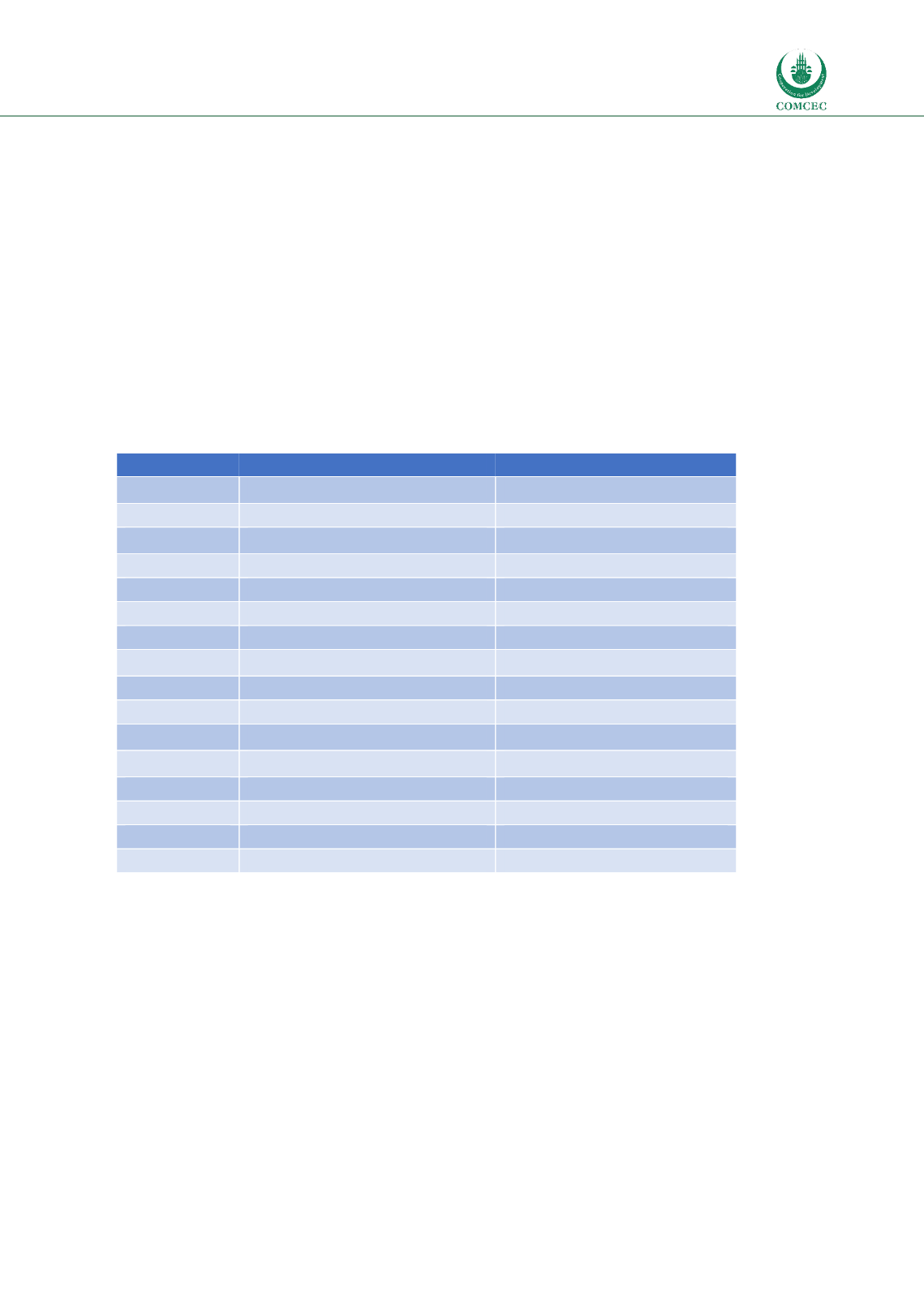

Risk & Crisis Management in Tourism Sector:
Recovery from Crisis
in the OIC Member Countries
95
almost 90,000 visitors in 1994 and providing around 7,000 jobs (Sharpley, 2007). However,
benefits to the local economy were limited due to high leakages and the high costs of meeting
the expectations of tourists in terms of food, other supplies and infrastructure.
A military coup in 1994 and a contested transition of power in 2017 had short-term effects on
visitor arrivals, but by then, Gambia has become established as a sun, sea and sand winter
destination for people from Britain (which provides around 50% of arrivals), Scandinavia, and
other north European countries. Access from these markets is dependent on charter flights and
package holidays organised by international tour operators: around 84% of arrivals are on all-
inclusive package tours (Mitchell and Faal, 2007). Tourism numbers overall are relatively small,
never having risen above a peak of 171,000 in 2013 (see Table 4.4).
Table 4.4: International Visitor Arrivals and Foreign Exchange Earnings – The Gambia
Year
Arrivals
Receipts (US$)
2000
79,000
Not available
2001
57,000
Not available
2002
81,000
Not available
2003
89,000
58,000,000
2004
90,000
51,000,000
2005
108,000
59,000,000
2006
125,000
69,000,000
2007
143,000
87,000,000
2008
147,000
80,200,000
2009
142,000
64,000,000
2010
91,000
80,000,000
2011
106,000
92,000,000
2012
157,000
99,000,000
2013
171,000
Not available
2014
156,000
Not available
2015
135,000
Not available
Sources: UNWTO
By 2004, tourism provided 16,000 jobs (Republic of The Gambia, 2006) and an estimated US
$
40 million in foreign exchange, but there was concern that the sector was generating less wealth
for the country than it could have done because of the high leakages; large shares of tourist
expenditure are repatriated to the countries where multinational hotels, international tour
operators and foreign airline companies originate. A Tourism Master Plan produced in 2006
aimed to address this by diversifying the tourism sector, extending the season, and developing
better links along the local supply chain in order to reduce reliance on imports. A small but
influential NGO – the Association of Small Scale Enterprises in Tourism (ASSET) – was
established in 2000 to promote better links between the informal economy of craft markets,
beach-vendors, tourist guides and other micro-entrepreneurs, and the formal sector of resort-
oriented package tours.
















